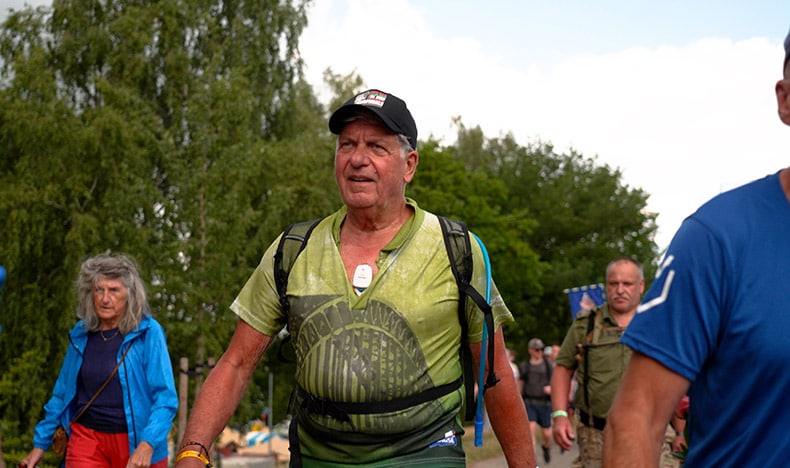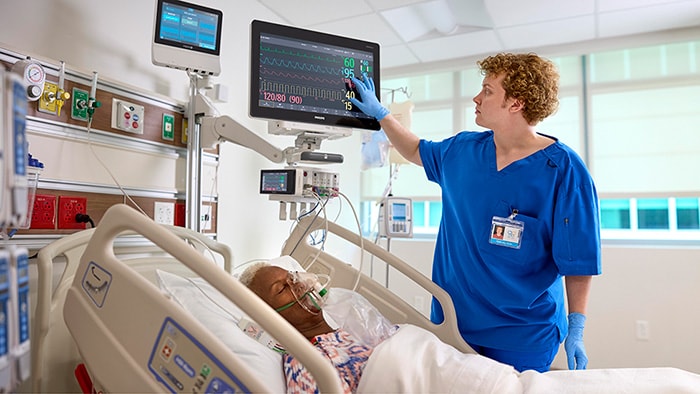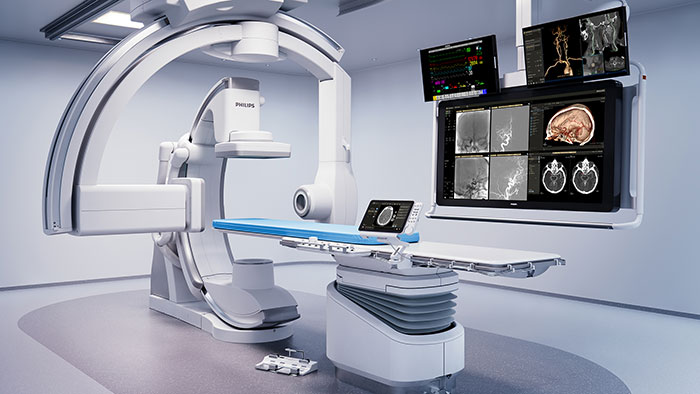Research during the 4Days Marches in the Netherlands on the impact of walking on atrial fibrillation
Study using an innovative patch-based Holter to detect atrial fibrillation provides insights into heart rhythm during physical activity
Jul 17, 2025 | 3 minute read
During the 4Days Marches, Radboudumc and Philips are conducting research into the effects of walking on atrial fibrillation, a common heart rhythm disorder. A total of 140 people with atrial fibrillation are participating in the study. Sixty of them are walking the 4Days Marches while wearing a Philips ePatch: a wearable heart rhythm Holter monitor in the form of a patch on the chest. This is one of the first large-scale studies to examine the effect of prolonged physical exertion on atrial fibrillation.

Atrial Fibrillation: Common but Often Undetected
In the Netherlands, around 400,000 people have been diagnosed with atrial fibrillation. Globally the condition affects approximately 59 million people [1]. The condition causes an irregular, rapid heartbeats and can lead to symptoms such as palpitations, fatigue, or shortness of breath. While not immediately life-threatening, atrial fibrillation significantly increases the risk of stroke or heart failure. Early detection and appropriate treatment are therefore crucial. It is estimated for instance that over 80,000 Dutch people have atrial fibrillation without knowing it.
‘We want to understand the effects of the training leading up to the 4Days Marches and participation in the event itself on atrial fibrillation,’ says Maria Hopman, Professor of Physiology at Radboudumc. With her team, she is studying participants in the months before the event and during the walking days themselves. ‘It’s unique to be able to monitor walkers in this way, being able to evaluate 24 hours a day across multiple days and under physical stress,’ Hopman explains. In addition to the data collected by the ePatch, researchers are also examining blood pressure, weight, and blood values. Participants also complete questionnaires. For some walkers, an echocardiogram is performed after several stages to image their hearts following the walking.

Wearable sensor measures heart rhythm day and night
The Philips ePatch is a wearable sensor about the size of half a matchbox that continuously records heart rhythm. Unlike traditional Holter monitors with wires and adhesive electrodes, the sensor is comfortable, wireless, and discreet—and can be used even during showering, sleeping, and exercising. The ePatch can be worn for up to five days and records heart rhythm throughout. For patients, this means significantly less discomfort during long-term monitoring. The collected data are analyzed quickly and accurately using artificial intelligence (AI).
‘We are proud to support Radboudumc during the 4Days Marches in a study on the effect of walking on atrial fibrillation,’ says Léon Kempeneers, Managing Director of Philips Benelux. ‘The ePatch is designed for long-term use and comfort, and we hope the participants will experience this. Our ePatch and AI-powered software can help diagnose people with heart rhythm disorders in a more pleasant and effective way. The ePatch and its software are already being used by several Dutch healthcare institutions.’

About the 4Days Marches Research
This year marks the 17th 4Days Marches research event. Professor of Physiology Maria Hopman and her team will be stationed at the research center near the start and finish location of the 4Days Marches in Nijmegen. In addition to the research on atrial fibrillation, studies are also being conducted this year during heatwaves on the effect of clothing color (white vs. black) and wearing a cap on body temperature.
Sources [[1] Atrial fibrillation: epidemiology, screening and digital health; Linz, Dominik et al.; The Lancet Regional Health – Europe, Volume 37, 100786 - https://www.thelancet.com/journals/lanepe/article/PIIS2666-7762(23)00205-3/fulltext







